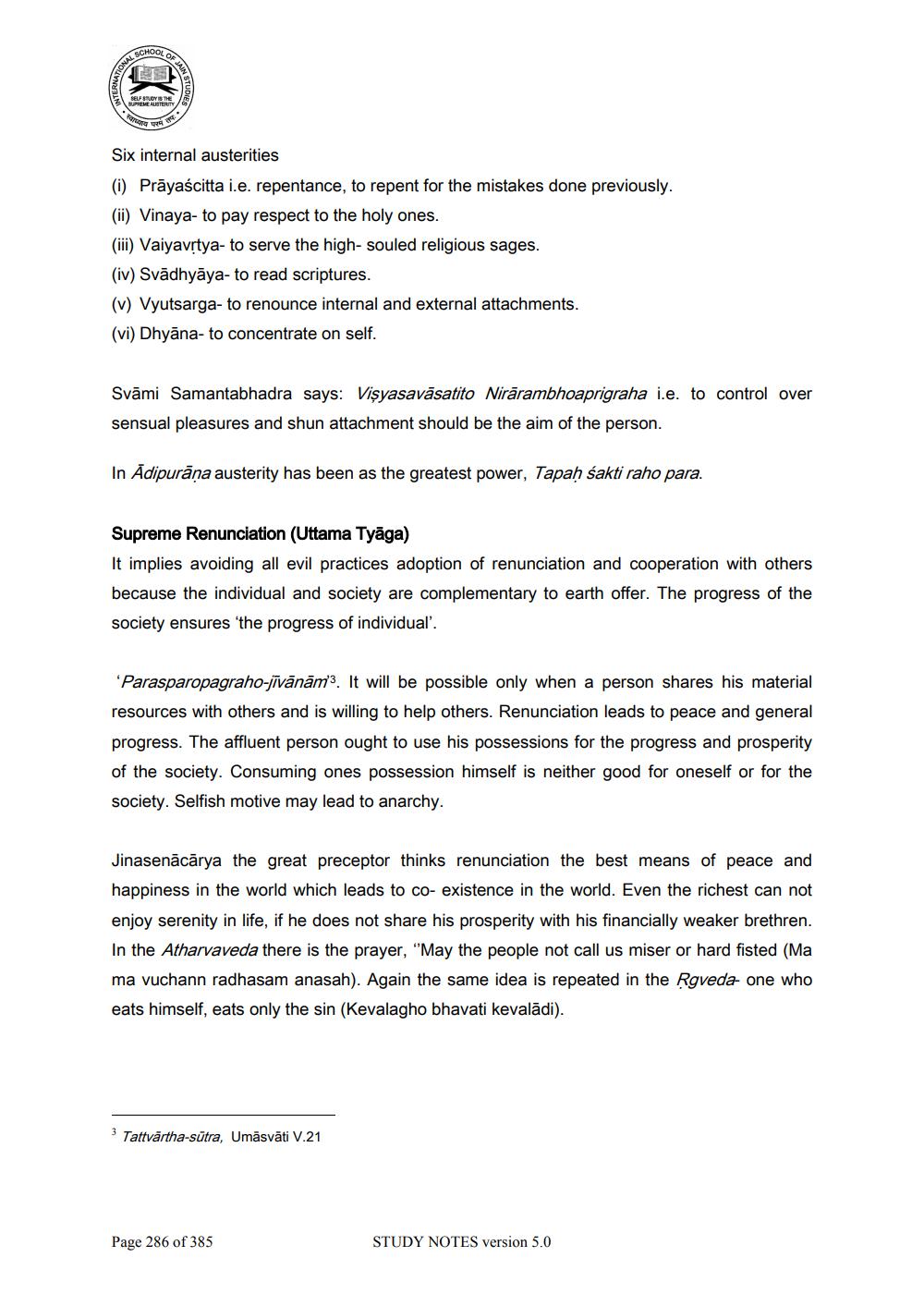________________
Six internal austerities (i) Prāyaścitta i.e. repentance, to repent for the mistakes done previously. (ii) Vinaya- to pay respect to the holy ones. (iii) Vaiyavrtya- to serve the high-souled religious sages. (iv) Svādhyāya- to read scriptures. (v) Vyutsarga- to renounce internal and external attachments. (vi) Dhyāna- to concentrate on self.
Svāmi Samantabhadra says: Vişyasavāsatito Nirarambhoaprigraha i.e. to control over sensual pleasures and shun attachment should be the aim of the person.
In Adipurāna austerity has been as the greatest power, Tapah sakti raho para.
Supreme Renunciation (Uttama Tyāga) It implies avoiding all evil practices adoption of renunciation and cooperation with others because the individual and society are complementary to earth offer. The progress of the society ensures the progress of individual'.
'Parasparopagraho-jīvānāms. It will be possible only when a person shares his material resources with others and is willing to help others. Renunciation leads to peace and general progress. The affluent person ought to use his possessions for the progress and prosperity of the society. Consuming ones possession himself is neither good for oneself or for the society. Selfish motive may lead to anarchy.
Jinasenācārya the great preceptor thinks renunciation the best means of peace and happiness in the world which leads to co-existence in the world. Even the richest can not enjoy serenity in life, if he does not share his prosperity with his financially weaker brethren. In the Atharvaveda there is the prayer, "May the people not call us miser or hard fisted (Ma ma vuchann radhasam anasah). Again the same idea is repeated in the Rgveda one who eats himself, eats only the sin (Kevalagho bhavati kevalādi).
3 Tattvārtha-sūtra, Umāsvāti V.21
Page 286 of 385
STUDY NOTES version 5.0




